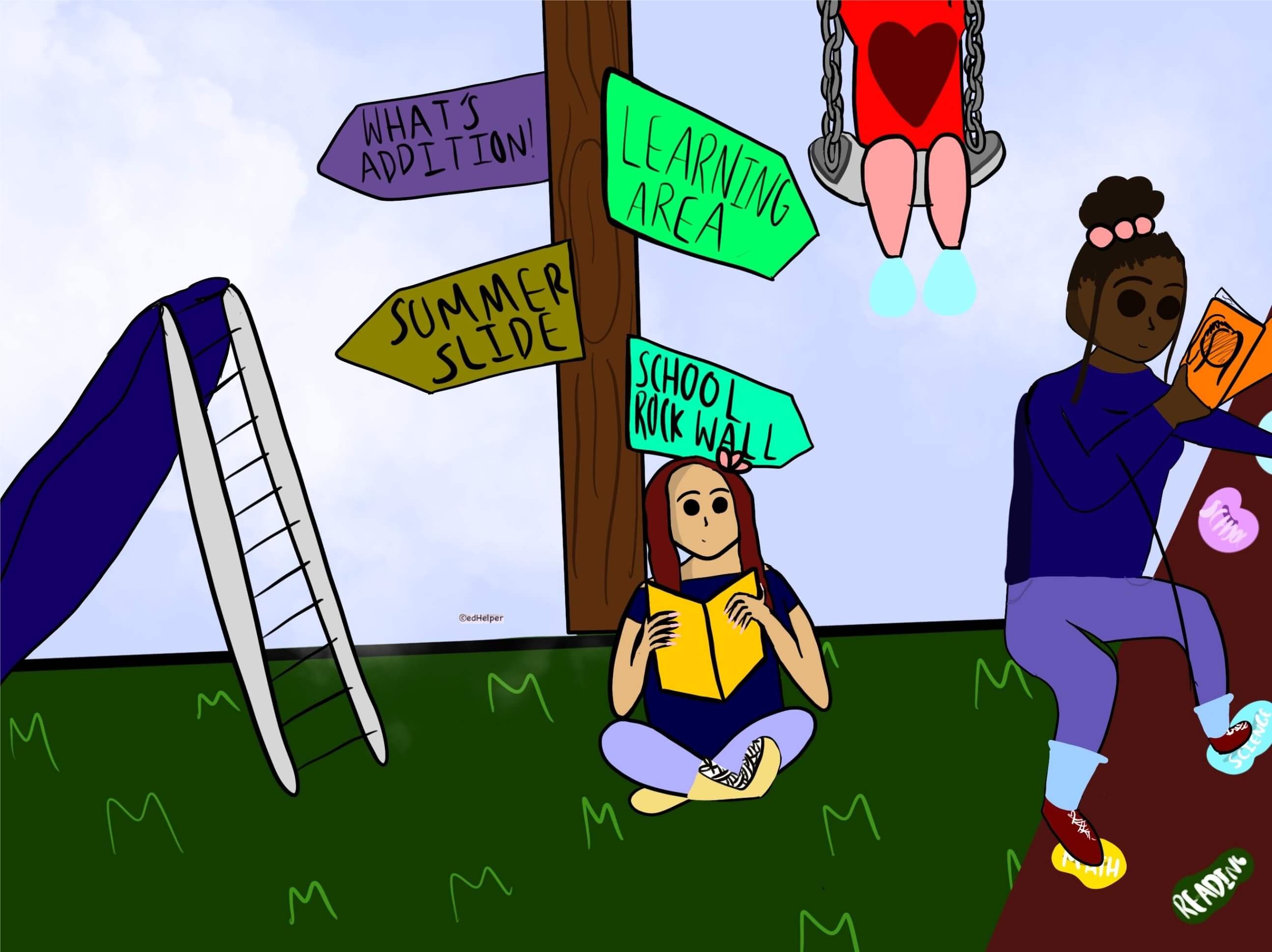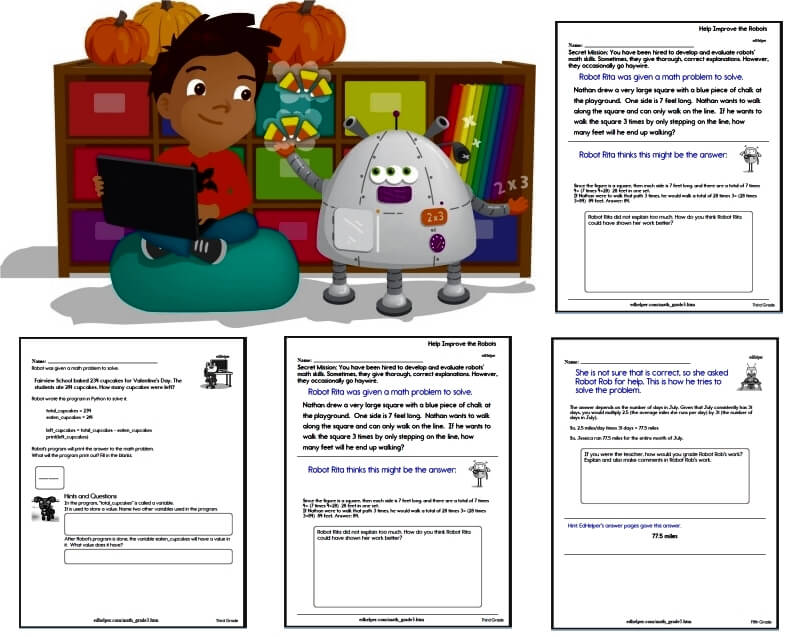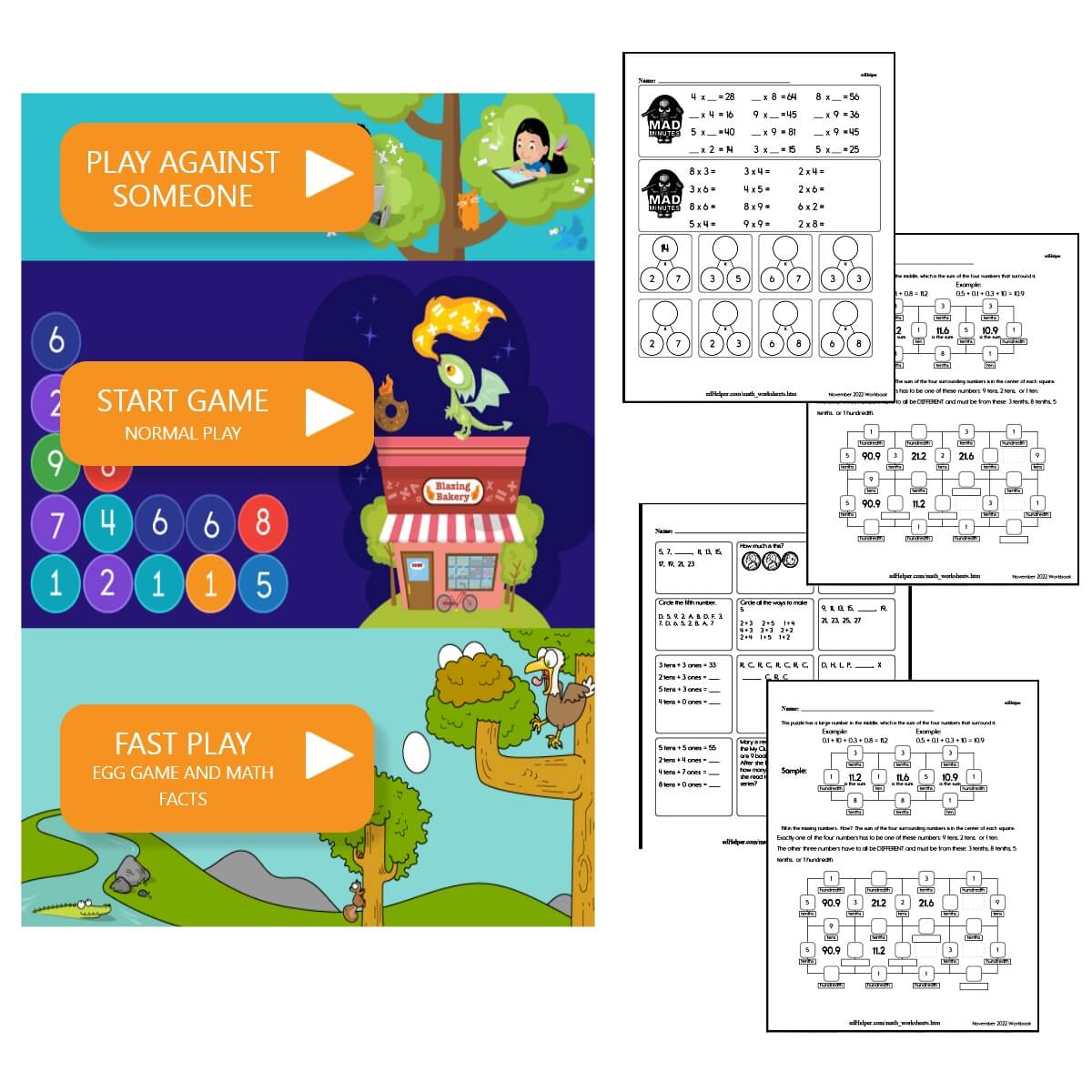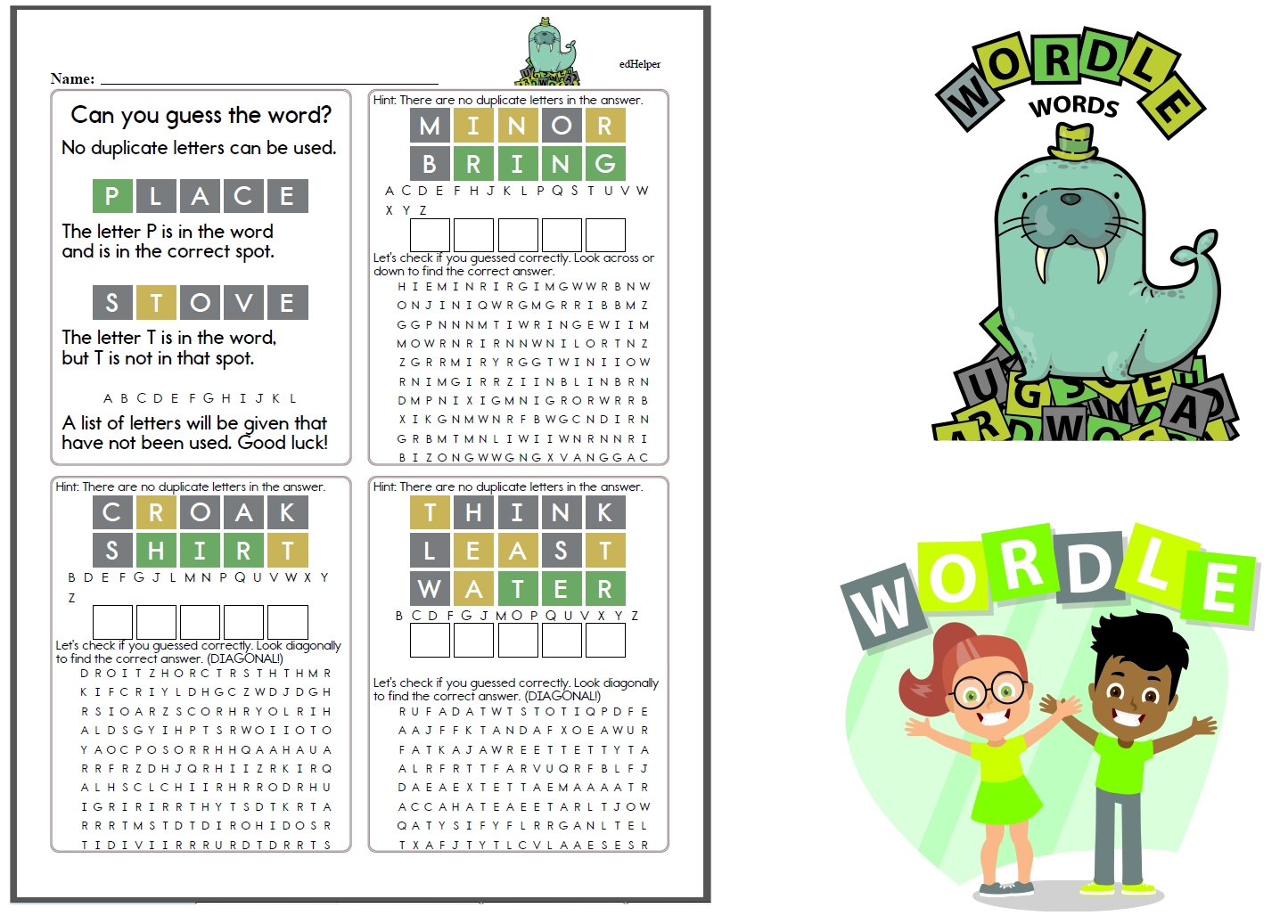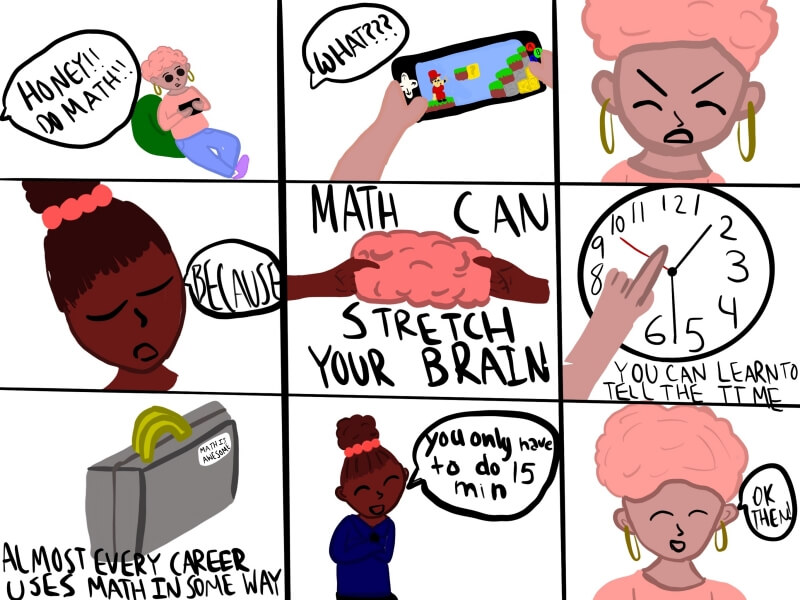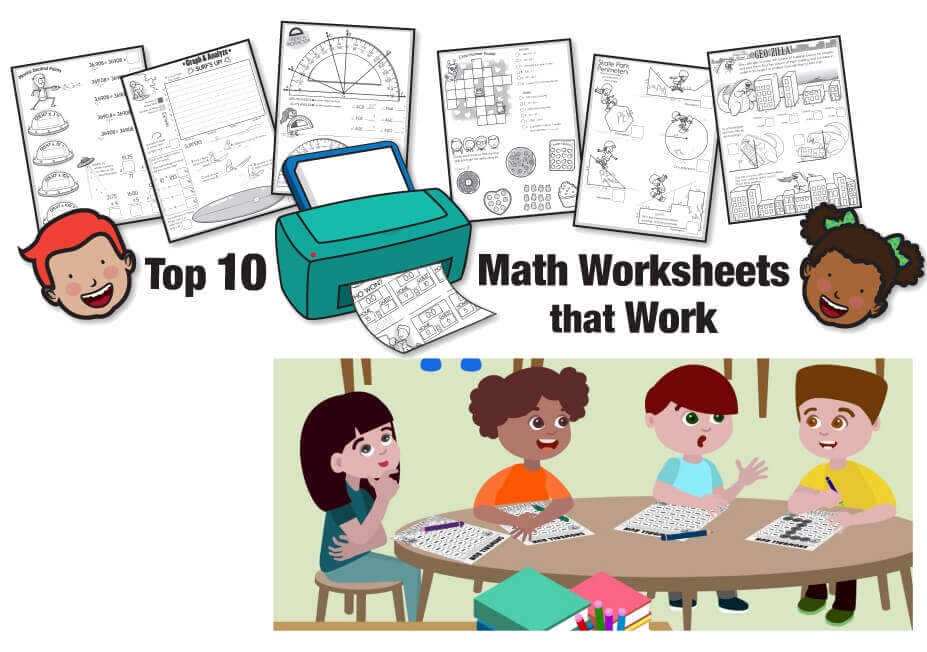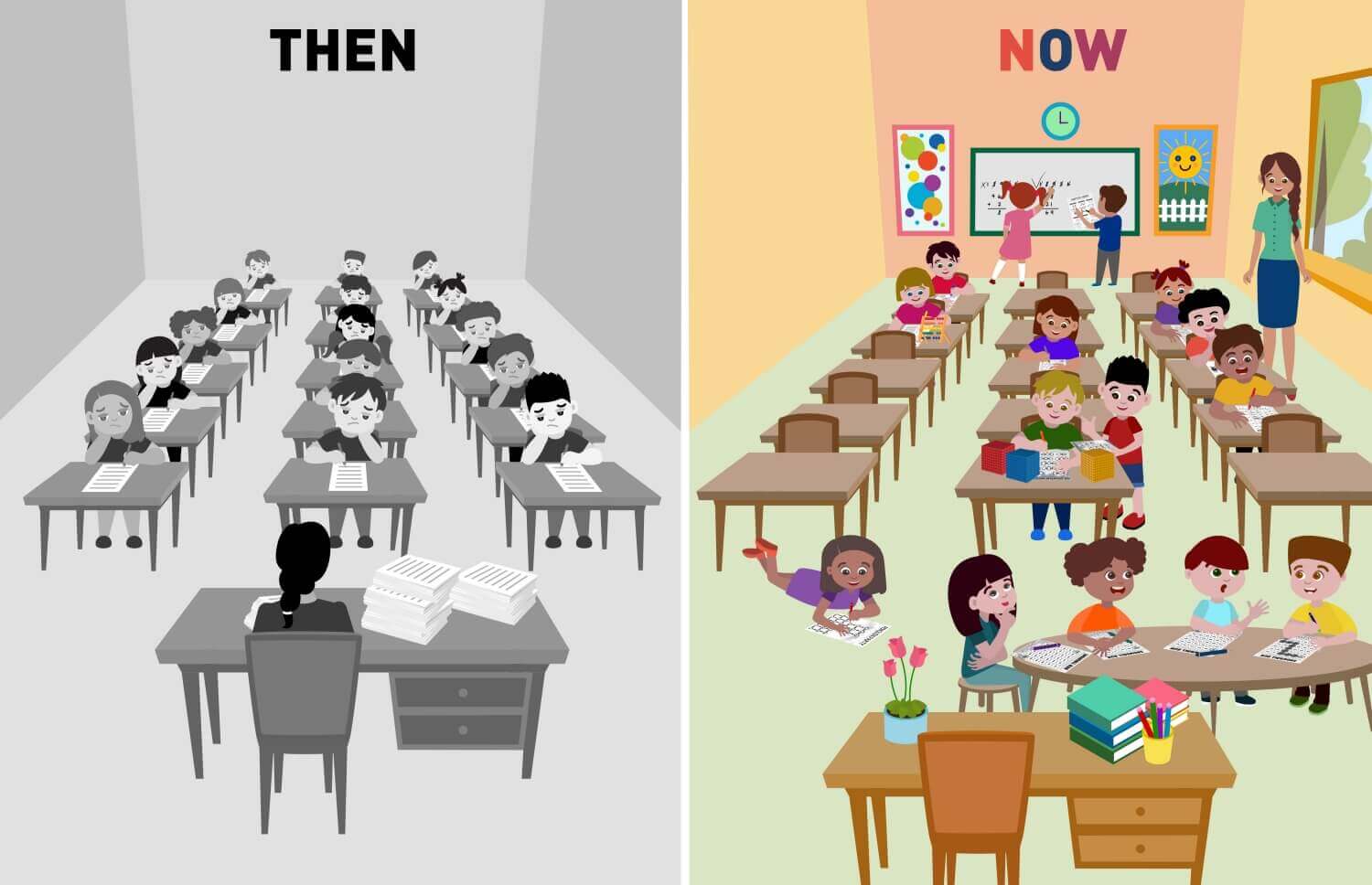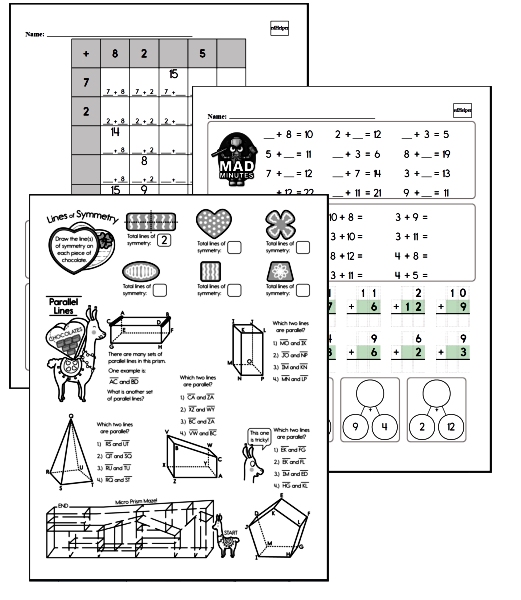When most parents think of the long-awaited summer break from school, they imagine family vacations, picnics in the park, and afternoons spent at the local playground. But what about the dreaded summer slide? Not the metal one that may be a bit too hot to touch and stings your skin, but the summer slide where children tend to lose one month's worth of academic gains? This year, the combination of school closures from COVID-19, coupled with the traditional summer slide, seems to have our students headed down a slide that lands in a playground filled with quicksand. How can we stop the summer learning slide and help children recover from the vast amount of learning that they've lost?
The summer slide most commonly affects students in third through eighth grade, with older students being more likely to suffer than younger ones. While socioeconomic status can play a role in the amount of learning lost, all students are susceptible to its effects. Traditionally the greatest losses are seen in reading and math, and teachers work diligently to make up the lost ground during the first few weeks of the new school year. Preliminary research, however, is showing that this year, students may be returning in the fall (or whenever campuses reopen) with less than 50% of the academic gains we'd normally expect to see, due to school closures. Couple that with learning lost over the summer, and some students could very well be nearly a full year behind where we'd expect them to be.
The challenge then, as parents or as educators, is to find ways to continue engaging students over the summer and offer opportunities to help them gain a foothold, find steady ground, and stop that slide!
Reading: This may seem overly simplistic, but younger students need to continue to develop their foundational skills so that they can succeed academically. Reading is key in helping to make sure this happens! When students read or are read to, they become better writers, they learn proper grammar, and they expand their horizons creatively when lost in a great fiction book or academically when tackling a real-life subject they find interesting. Research shows that students who read for just twenty minutes each day make the most academic gains, so there's no need to nag for hours of book time! Simply help your child find a good book, a cozy spot, and set the timer for twenty minutes. Who knows? They may surprise you and keep reading long past the bell!
Make it fun: Most local libraries will host summer reading programs that encourage and reward students for reading. Find out what your library or bookstore is offering. You can also create your own reading reward system at home or try reading challenges. These are a fun way to spice up your child's daily reading time and keep them looking forward to it each day.
Make it interesting: There is great power in choice! Help your child choose books that interest them but also challenge them. A little bit of challenge is exciting. A book that is too hard, however, can lead to discouragement and more resistance when it comes to reading. If you're struggling to find books that allow your child to feel successful, leveled reading books are a great resource. With a variety of themes, storylines, and ability levels, your child will be able to read each mini-book in its entirety and feel proud of their accomplishments.
Make it consistent: Find a pocket of time that works well and stick with it. Is your child more likely to curl up and read after lunch? Or do they get more tired (and ornery!) as the day wears on? If so, set aside some time for reading each morning.
Math: Students are naturally inclined to read over the summer. Words are everywhere-from street signs to cereal boxes. Children have greater exposure to reading over the summer, but they don't have the same natural experience with math. This may help to explain why we notice the greatest slide when it comes to math skills. So what can parents do to help their students with math? How can parents slow that summer math slide?
Point it out: Math is part of our everyday experiences; children just don't always recognize it. Have your child estimate grocery store totals when shopping for your weekly supplies. Ask them to create a budget for summer activities. Have them calculate the time it will take to drive to a friend's home based on the distance and the speed. Even if they need help solving these types of problems, pointing them out to your child will help them start to think about everyday situations like a mathematician.
Practice it If we want our children to grow their skills, we need to provide them time to practice them. We wouldn't expect them to score the winning soccer goal or hit a homerun without attending weekly practices, would we? The same is true with math. Children need opportunities to sharpen and review their math skills over the summer in order to keep the dreaded summer slide at bay. These engaging math worksheets are worksheets your children will want to do and will provide them the practice they need.
Play it: Make math fun this summer with countless online and screen-free math games. Traditional dice and board games can help with counting skills, as can card games like Go Fish or War. Several online options exist, as well. PBS Kids, for example, offers great math games that are perfect for younger learners. Prodigy Math is another popular option. Remember that while fun, online games don't offer many opportunities for students to show their work or think critically about concepts, so the time spent here cannot take the place of well-crafted printable worksheets when it comes to really solidify math understanding.
Reading: That's right! Older students need to keep reading, too, and not just on social media. Daily reading is critical over the summer as students seek to avoid losing academic gains. Like with younger learners, we want our older students to find books they are interested in and get lost in the art of reading. We can also, however, sneak in other types of reading during the summer months.
Put them in charge of the planning: Ask your older child to research and plan an upcoming family trip or a trip they'd like to take someday. Have them use the internet and books from the library to learn about the location and plan out the details of a real (or imaginary!) trip. You can also ask them to be in charge of meal planning. Ask them to create a menu, research recipes, and create shopping lists for the week. What about future career plans or college/trade school dreams? Ask your child to research and plan out those ideas, as well. They can take virtual college tours, learn about different jobs that might pique their interest, or study trade school locations in different parts of the world. Don't tell them now, but all of this real-life planning is reading in disguise!
Print something new each day: In addition to a great stack of books from the library or online sources, quick reading comprehension pages will give your child a chance to read short fiction and non-fiction passages and answer questions to assess their understanding. Choose your child's current grade level or select one above or below to help challenge or support their needs.
Put a price tag on it: If your older child is resistant to reading, use it as a form of currency. Allow them to trade time spent reading for other activities they want to do. Twenty-minutes of reading, for example, could equal a certain amount of screen time or time spent with friends.
Math: As our children grow in their conceptual understandings of math, the "use it or lose it" phrase seems to come to life. While some concepts are like riding a bike-you learn it once and years later can jump right back into it-others require more repetitive practice. Take advantage of these summer months as an opportunity to do just that (and to get outside and ride your bike).
Think outside the box: Summer is a great time to rearrange, reorganize, and redecorate our rooms.If your child is anxious to make some changes, have them work on measuring dimensions, finding the area of their room, drawing out floorplans with diagrams, and ultimately deciding how other configurations of their room may work. This is all math (coupled with some creativity). You can also pull more real-world examples and math lessons for middle school students. Allow them to calculate the probability of scoring at the buzzer to win the game, or figure out exactly how much you're paying for each slice of pizza they are begging you to order.
Print and practice: These printable math practice books are the perfect way to keep your student engaged with math over the summer. You can choose from a variety of skills to review, or print challenge books to help them extend their learning. Unlike the common, boring drill-and-kill worksheet, your children won't see this as busywork, but rather as a fun way to work on math. Encourage them to set a goal for the number of pages they'd like to complete each day or week, and then praise them for their effort.
The summer slide, unfortunately, is a known phenomenon that is hard for most students to escape. This year in particular, our students are facing an academic crisis of sorts as they've missed out on countless hours of face-to-face exposure due to school closures. While educators as a whole have done a fantastic job with the nearly overnight scramble of getting some type of distance learning in place, learning was lost. The good news is that the resources mentioned in this article, while they can't replace months of missed instruction, can slow that slide! They can give your child the opportunity to strengthen and sharpen skills and continue learning and growing all summer long. Let's do our best to help make sure that the slide at the playground is the steepest and fastest one students experience this year. That slide is fun!

